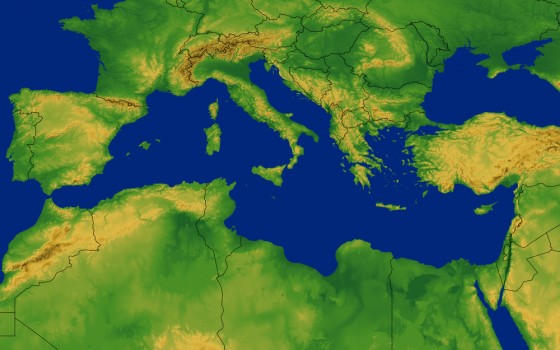The World Wildlife Fund (WWF) says that the Mediterranean’s biggest eco-debtor is Italy, meaning that nation uses more resources than it generates. Does that mean Middle Eastern nations bordering the sea are environmentally savvy consumers? Mama Mia, no! The medium is the message, said Canadian philosopher Marshall McLuhan. And the message is skewed by the words. Calling our region the “Middle East” chops off connectivity to the other club we belong to: the Mediterranean Basin region.
According to data released by the Global Footprint Network, based on a 47-year-long study, Italy is the Mediterranean Basin country with the highest environmental debt. The Middle East doesn’t appear until fourth and fifth place rankings: Turkey (10%) and Egypt (9%).
”This study examined country footprints from 1961-2008,” explained WWF Italy’s Scientific Director Gianfranco Bologna in a report by ANSAMed. ”Italy had the highest ecological deficit in the region. Overall, energy and services demand in the region rose 197% in 47 years, tripling the ecological deficit (+230%). In the last four years, difference between local supply and demand rose by 150%.”
Italy’s ecological deficit is 23%, according to the report. Next are Spain (17%), and France (13%).
The southern shore of the Mediterranean is positioned to climb in the rankings because the richer a country becomes, the greater its demand for resources. Its carbon footprint will also grow exponentially.
Civil war and political upheaval have dampened economic growth in our region, but as nations emerge stronger and with improved stability, commerce and tourism will resume with ravenous consumption of natural resources.
”Between 1961-2008, Turkey, Morocco, Tunisia, Libya and Syria went from being eco-creditors to debtors, with Algeria making the biggest jump,” Bologna explained. Portugal was the only country that reduced its eco-debt over the study period, by 18% from 1998-2008.
The Middle East dodged a bullet in this “name and shame” analysis, but the data can be viewed as a warning. Middle Eastern development is inevitable: it’s imperative to plan now for smart growth or face catastrophic ecological deficits.
Image of Mediterranean map by Shutterstock




Comments are closed.